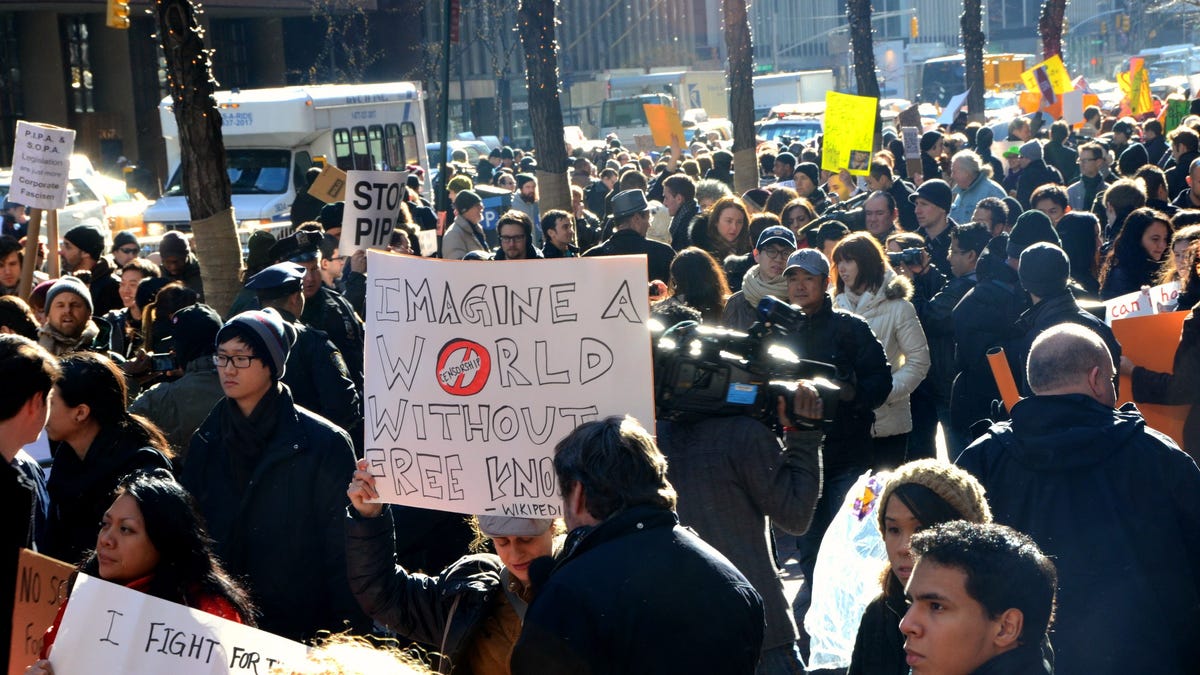Post SOPA, influential tech investor favors 'blacklisting' pirate sites
VC Fred Wilson says Google, Bing, Facebook, and Twitter should warn people when they try to log in at known pirate sites: "We don't need legislation."

Fred Wilson, a well-known venture capitalist from New York, says he's in favor of creating a blacklist for Web sites found to traffic in pirated films, music, and other intellectual property.
The co-founder of Union Square Ventures told a gathering of media executives at the Paley Center for Media yesterday that he believes a good antipiracy measure would be for Google, Twitter, Facebook, and other major sites to issue warnings to people when they try to connect with a known pirate site.
Wilson favors establishing an independent group to create a "black and white list." "The blacklist are those sites we all know are bad news," he told the audience in New York. "We all know who the good guys are [he listed Hulu, Netflix, Rdio, Spotify, Rhapsody] who are truly licensed and are operating legitimately. And we know who the bad guys are."
Under Wilson's plan, an independent body would determine the "good guys" and the bad. Then the Web sites that wish to participate would serve a pop-up notice when users tried to visit blacklisted sites.
"We're not blocking people from the site," Wilson continued. "The interstitial says, 'You're going to a site that's on our blacklist. We believe this site contains almost entirely pirated content and by the way you can get that content legally on these whitelisted sites.'"
Wilson would like to see Google, Facebook and even Mozilla participate and if they did he would want them to report "to the world" how many people they're sending to "MegaUpload and The Pirate Bay and the BitTorrent sites...Using technology, we train our youth to know that they're doing something bad and how they could do something that's good."
Sounds painless for everyone--and that's probably why such an idea is unlikely to receive support from copyright owners. There's no doubt that the entertainment industry would like to avoid alienating its audience, but copyright holders also appear intent on putting some real teeth in any antipiracy strategy.
Wilson did say he believes pirate sites should be shut down, which seemed to delight many in the audience. The studios and labels were big proponents of the antipiracy legislation known as the Stop Online Piracy Act (SOPA), and Protect IP Act (PIPA), which were defeated before there was even a vote on either bill. Opposition to the legislation came largely from tech companies.
Now, in a post-SOPA world, the big studios, TV networks, and record companies are picking through the wreckage, looking for ways to build support for antipiracy efforts in Silicon Valley, thus this meet-and-greet with Wilson, who is influential in the tech community.
But even Wilson didn't sound encouraging about whether his antipiracy idea would be welcomed by tech companies.
"Google should do this," Wilson said. "They won't but they should."
It won't come as a surprise that Wilson is sympathetic to at least some of the piracy problems that copyright owners face. His venture capital fund is invested in Turntable.fm, an online music service, and Boxee, software that enables owners to watch Web video on TVs.
Both companies have stayed within the law and competed against companies that don't. Not having to pay to license content is a big advantage over those that do pay.
This didn't stop Wilson, however, from taking copyright owners to task about their digital efforts. He said he was skeptical that many of the people pirating movies would have purchased the movie and therefore equate to lost sales for Hollywood.
"Our children have been taught to steal," Wilson said, "and they have been taught not just by the MegaUploads, BitTorrent (sites) and Pirate Bays but have been taught by the content industry because the content industry has not let them have what they want legally, inexpensively, and conveniently."
The studios and music labels note that they have been licensing their video and music to digital services for years: YouTube, Netflix, Spotify, Apple, etc.
Wilson saved his strongest statements for SOPA and for any future attempts to pass similar antipiracy legislation.
"We don't need legislation," Wilson said. "If we need legislation, we need legislation to undo the (Supreme Court decision in MGM vs. Grokster, which enables copyright owners sue companies for enabling people to illegally share intellectual property) ...We need a negotiated solution between the tech industry and content industry. The minute you introduce Washington and lawyers and courts, it's war. I don't think that's where we want to solve this problem. Let's solve this problem in boardrooms and meeting rooms, not in Washington."

